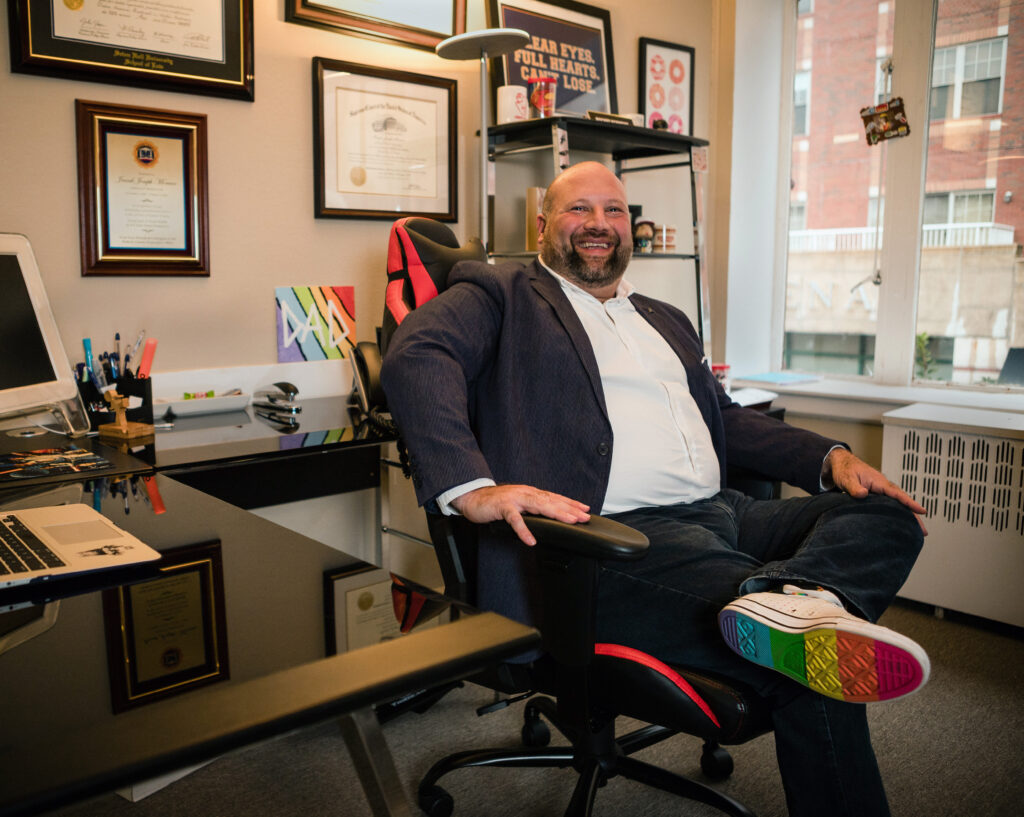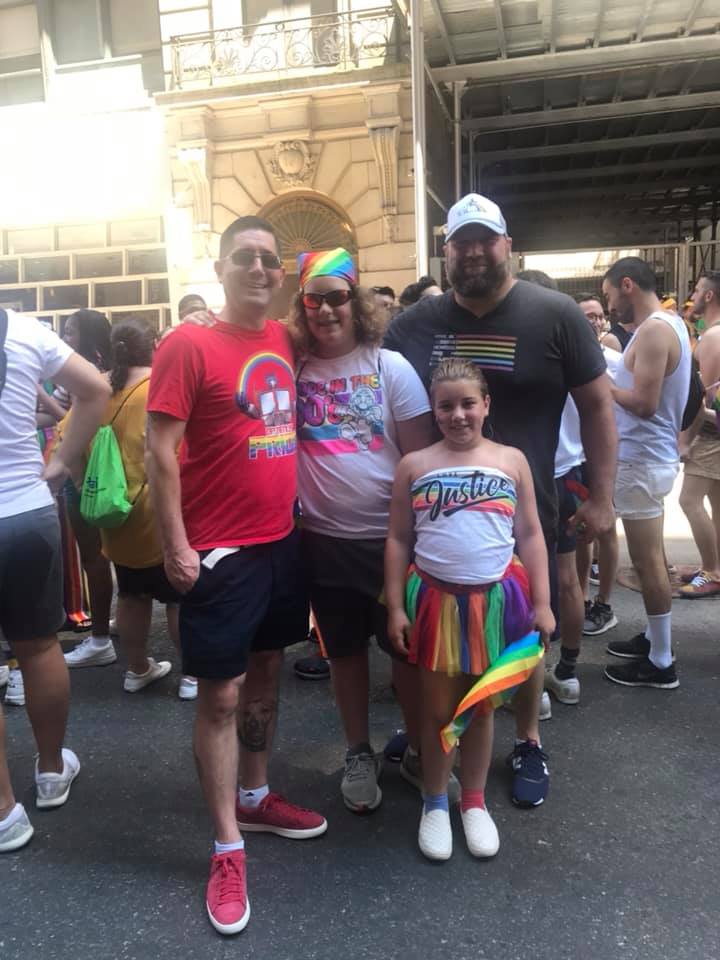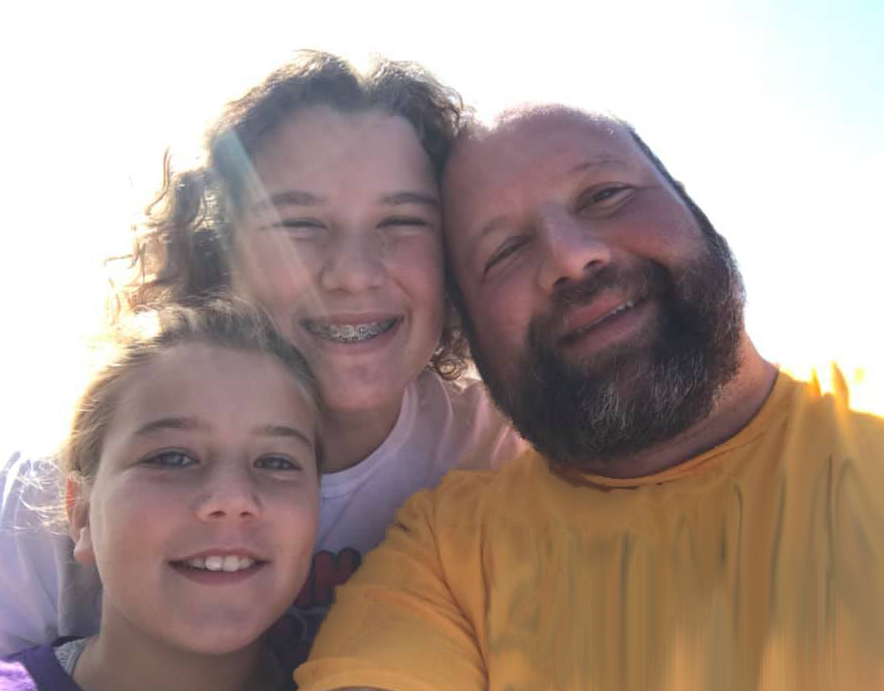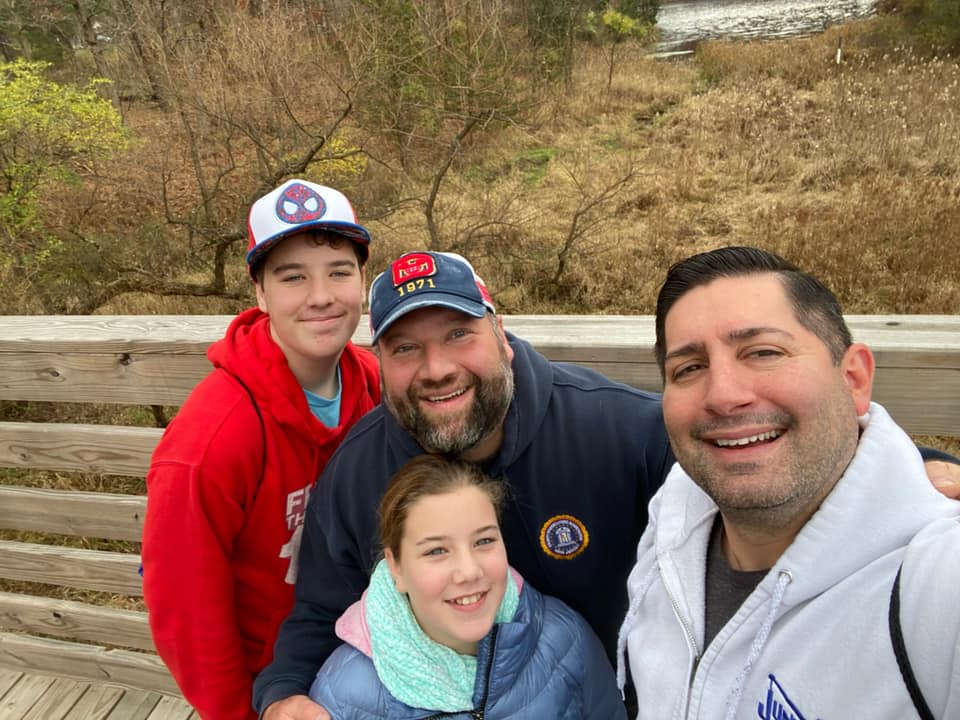Do you have LGBTQ+ legal counsel?
Creating family as an LGBTQ+ person — from formalizing relationships to embarking on the journey of parenting — can be magical and rewarding.
But if things don’t go smoothly, that path can also be paved with challenges, sometimes resulting in legal battles. So we asked Argentino Fiore Law & Advocacy about what services they offer in times of need.
Firstly, the New Jersey-based practice is “trauma-informed,” which means they understand that clients are most likely to engage their services during a personal crisis that is psychologically challenging and those individuals may also have suffered psychological or physical trauma in the past that contributes to present and future emotional challenges. Argentino Fiore Law & Advocacy (AFL) specializes in matters that are difficult for anyone: domestic violence, divorce, custody, parentage disputes, civil rights violations, anti-bullying advocacy — but these issues can be especially painful for LGBTQ+ people who may not have legislation or social acceptance on their side.
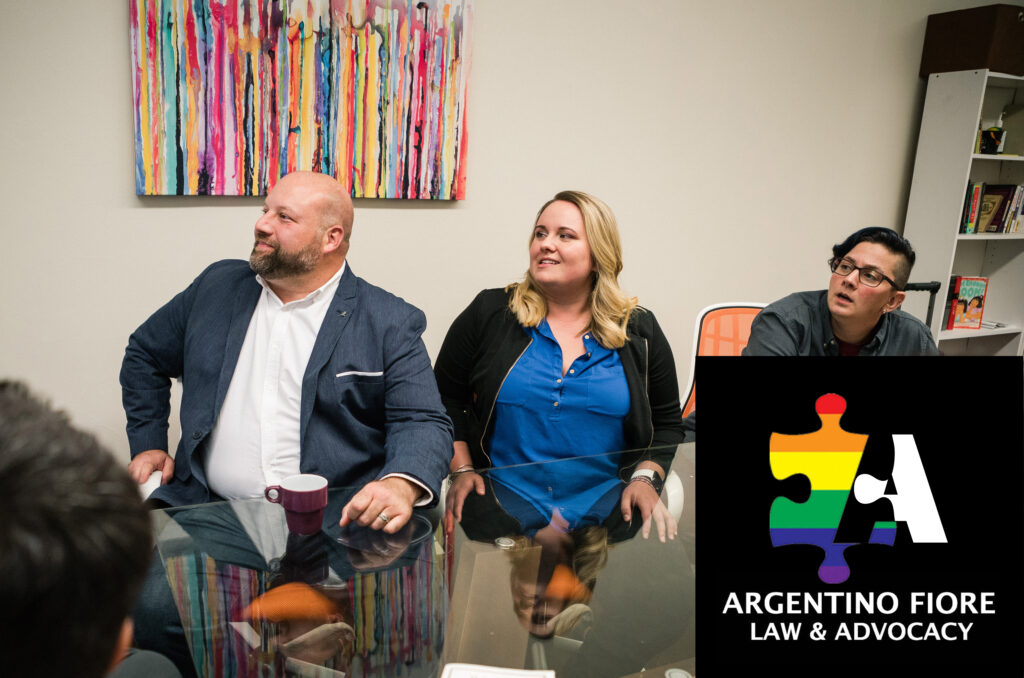
Secondly, each member of the team at AFL is a part of our community or a fierce ally and may even have personally experienced some of the life-changing events that require legal counsel, thus making them able to deeply empathize and advocate.
Frank J. Morano, Esq., Counsel (he/him/his), a gay cisgender man with a former career as a state prosecutor, is particularly aware of his clients’ needs. Communicative and understanding, he’s ‘been there.’ Frank was married to a cisgender heterosexual woman for 13 years. They had met in college and were best friends, married, and had two children together. “Then I came out to her in the fall of 2015 and we got divorced within a year,” says Frank.
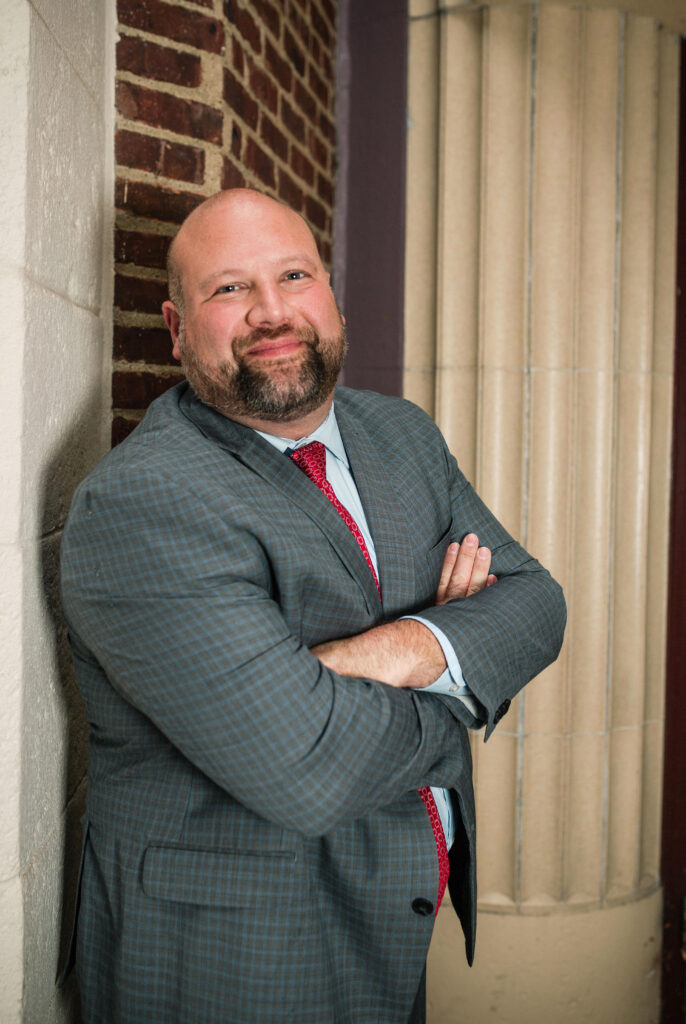
The process, while amicable, was not easy. Frank had a lot to explain to his son, 9, and his daughter, 7. They only knew one other family where the parents were divorced, so he sought advice on how to handle talking to them about the separation, and then how to come out to them and allow them to ask questions and express their emotions.
In this process, which turns toxic for many people, a rainbow family emerged. Frank’s ex-wife lives one town over, the kids go back and forth between two homes and four parents — Frank is engaged to his partner and his ex-wife has a boyfriend. Getting there “wasn’t all roses and rainbows. It takes time,” says Frank, but now “we always laugh and the four of us get together for dinner and hang out. This past Christmas, we spent all the holidays together.”
Frank’s ex-wife even gifted him with some rainbow homewares for Christmas. His kids were similarly accepting. “My partner Rob, who I had just started dating and within a few months, he was coming around and meeting them as my friend. And one day my daughter, who was 8 at the time, asked me if I was going to get remarried. And my son, — God bless the boy — was like, Who would he marry? And my daughter goes, ‘Rob!’ And my son was like, ‘Two guys. That’s awesome.’ And then he went back to his video games.” Just a few years later, they all marched in the 2019 New York Pride Parade, decked out in rainbow gear.
Representing another aspect of LGBTQ+ identity and family at the law firm are Celeste Fiore, Esq., Partner (they/them/theirs) — who identifies as a non-binary trans-masculine queer; and Jodi A. Argentino, Esq., Managing Partner (she/her/hers) — who, when having a more extension conversation into her identification as “queer” is extended, we learn identifies as a skoliosexual demifemale. Jo and Celeste have a blended family that live together and includes Jo’s former spouse and her genderfluid partner as well as three amazing children, who each have their individual identity journeys.
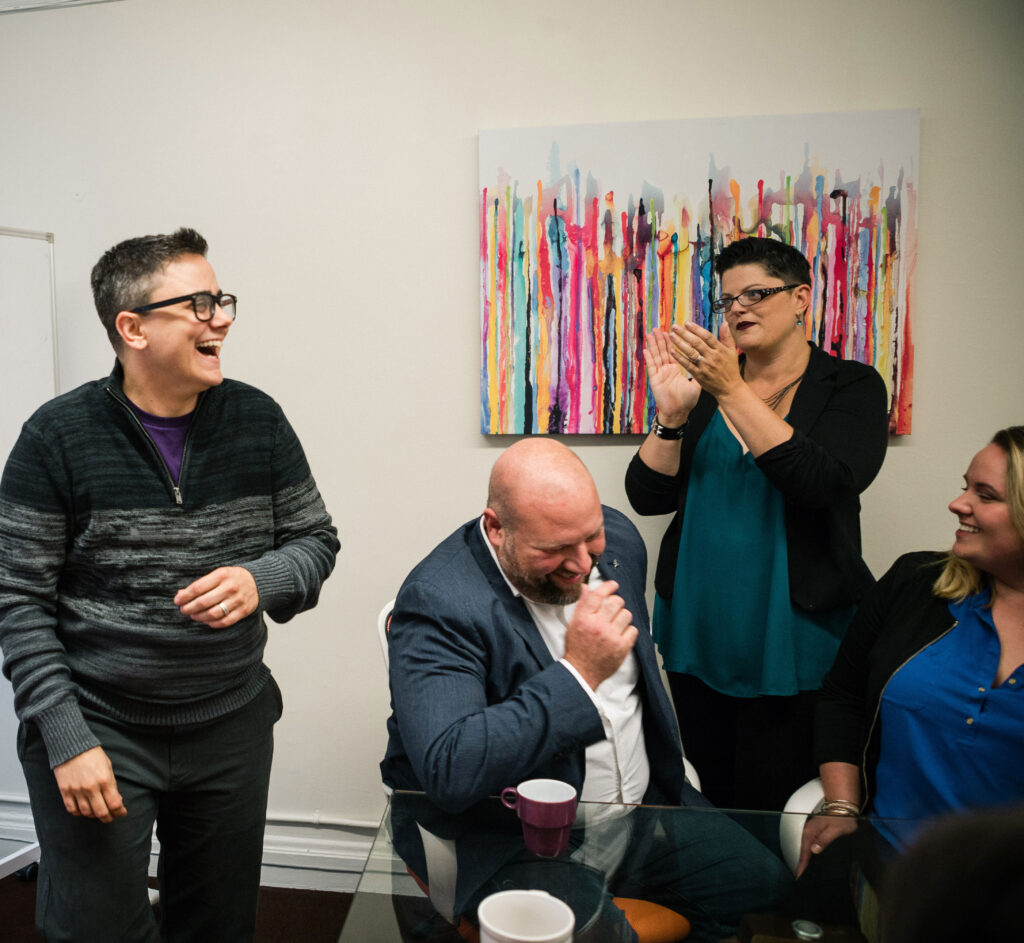
While AFL does not have a “typical” client — clients tend to come to the firm with multi-layered issues, from all walks of life, varied socioeconomic levels, race, and a full spectrum of gender identities and sexual orientations. There is increasing demand for name changes, sought after, particularly, by young transgender men. Celeste Fiore, founding Partner of AFL, recently formed a non-profit called the Trans Affirming Alliance, which provides guidance for the transgender community. All of AFL’s team members proudly volunteer their services even outside of work hours.
Celeste reveals that AFL regularly represents “trans/non-binary/GNC clients in all areas of our practice: family law, education law (including anti-bullying and special education advocacy), and in name changes. We do a lot of name changes, both for adults and for children, which is where we see the most of our trans/non-binary clients.”
In fact, this is the growth area in law for our community. “Transgender, non-binary, and GNC people need immediate access to identity documents that reflect who they are, which includes confidential name change processes through courts and easily updatable photographs on IDs,” says Celeste. “We also need access to competent and life-saving medical care, that is guaranteed by law. Healthcare is a human right and for trans people, we often lack access to basic services due to discrimination, hostility, or other barriers.”
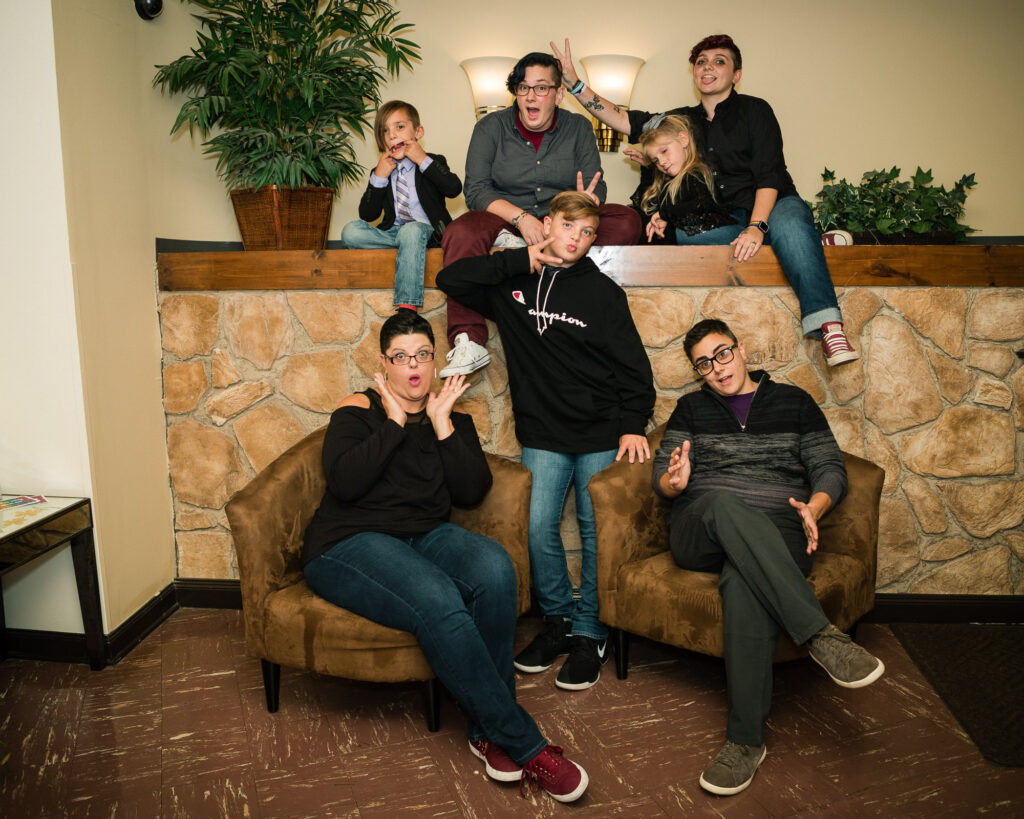
Areas of legislation that are lagging behind for LGBTQ+ people — especially families — lie in parenting, says Jodi Argentino. “Parentage Acts, statutes that define how one becomes a parent, either need to be enacted or updated to remove gendered terms and to fully incorporate the family structures that are people’s lived reality — such as multi-parent families, ‘known’ donor situations, and families of choice instead of those exclusively determined by genetics.”
Whether you are trying to create a family; whether your family has split apart; or whether you are trying to be affirmed so that you can find your space in this world and find your people — you need to know how the law can help protect your rights. “Before you start planning to start a family, consult an attorney even if you’re working with a fertility center!” advises Jo.
“Consult an attorney if something doesn’t feel right to you,” adds Celeste. “Just because you talk to an attorney doesn’t mean that you have to sue someone or press charges: it just means that you’ll be advised of your rights so you can make informed choices.”
And make sure your attorney understands you and champions your community and has an ‘advocacy first’ attitude — like AFL.
For more information visit ArgentinoLaw.com. Check out Frank Morano’s LGBTQ+ blog Big Bear Corner.

